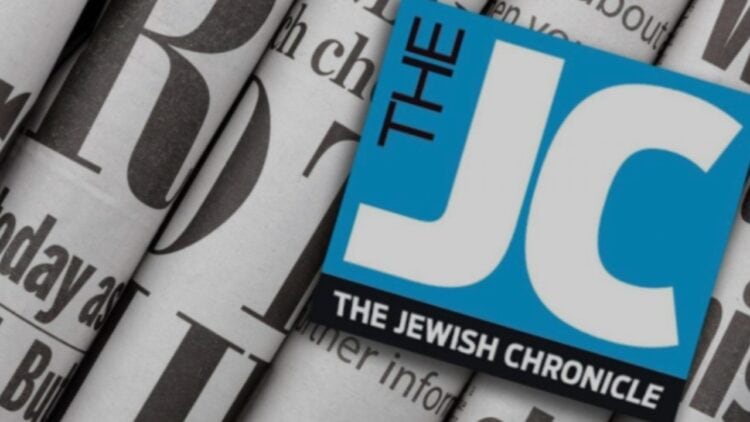Several prominent columnists, including David Baddiel, Jonathan Freedland, and David Aaronovitch, have resigned from the Jewish Chronicle (JC) following revelations of fabricated stories related to the Israel-Hamas conflict. The controversy stems from articles written by freelance journalist Elon Perry, which were found to contain questionable claims after an internal investigation by the newspaper.
The scandal erupted last week when the Jewish Chronicle issued a public apology and removed all of Perry’s articles from its website, citing concerns over their accuracy. The paper admitted that it was “not satisfied with some of [Perry’s] claims” after conducting an inquiry into his reporting, which allegedly included fabricated intelligence on Hamas leaders. Perry, who has claimed ties to the Israeli Defence Forces (IDF), had written articles suggesting, among other things, that Hamas leader Yahya Sinwar was planning to escape Gaza to Iran along with Israeli hostages – a claim reportedly dismissed by the IDF.
In response to the revelations, three high-profile columnists severed ties with the paper. Jonathan Freedland, a long-serving columnist who has contributed to the Jewish Chronicle since 1998, announced his resignation on social media, describing the scandal as a “great disgrace.” In a letter posted on X (formerly Twitter), Freedland expressed his deep disappointment, stating, “The latest scandal brings great disgrace on the paper – publishing fabricated stories and showing only the thinnest form of contrition – but it is only the latest.” He added that the JC has too often functioned as a “partisan, ideological instrument,” with political motivations overshadowing journalistic integrity. Freedland also criticised the ownership’s lack of transparency, saying he had long urged the paper to reveal its backers, but with no success.
David Baddiel, the comedian and writer, also confirmed his resignation through a spokesperson. While Baddiel did not offer a detailed statement, his spokesperson told the PA news agency that he “has no plans to write any more columns for the paper,” though there was “no further comment at this stage.” Baddiel, who has contributed to the JC sporadically, wrote his most recent column in September.
David Aaronovitch, a former The Times columnist, followed suit, confirming his departure by retweeting Freedland’s letter and stating that he had “done the same.” Journalist Hadley Freeman, another regular contributor, also resigned, posting on X: “I’m immensely grateful for all the support I’ve had from the editors during my time there and enjoyed writing for it enormously. But recent events have made it impossible for me to stay.”
The controversy has sparked a wave of criticism toward the Jewish Chronicle, which has historically been regarded as the world’s oldest Jewish newspaper. In a statement on Friday, the newspaper said it had “ended any association with Mr Perry” and promised to “review our internal processes so that this will not be repeated.” The JC also stated that it maintains “the highest journalistic standards in a highly contested information landscape” and expressed “deep regret” over the chain of events.
Freedland, however, remained unconvinced by the paper’s response, describing it as offering “the thinnest form of contrition.” In his letter, Freedland reiterated his emotional connection to the JC, noting that his father had also worked for the paper, and he had been loyal to it for decades, despite growing concerns about its direction. He expressed hope that the JC might “return to its best traditions,” suggesting that he would consider returning under different editorial circumstances.
Elon Perry, the journalist at the heart of the scandal, has yet to publicly comment. On his personal website, Perry describes himself as a “popular lecturer,” a Middle East expert, and a former Israeli commando, claiming involvement in operations against terrorists in Gaza, the West Bank, and Lebanon.
The fallout from this scandal has left the Jewish Chronicle facing a credibility crisis, as it seeks to rebuild trust with its readers and maintain its place as a respected voice in Jewish journalism.
You may also like: Jeremy Corbyn joins forces with new party set to rival Labour and Reform UK







